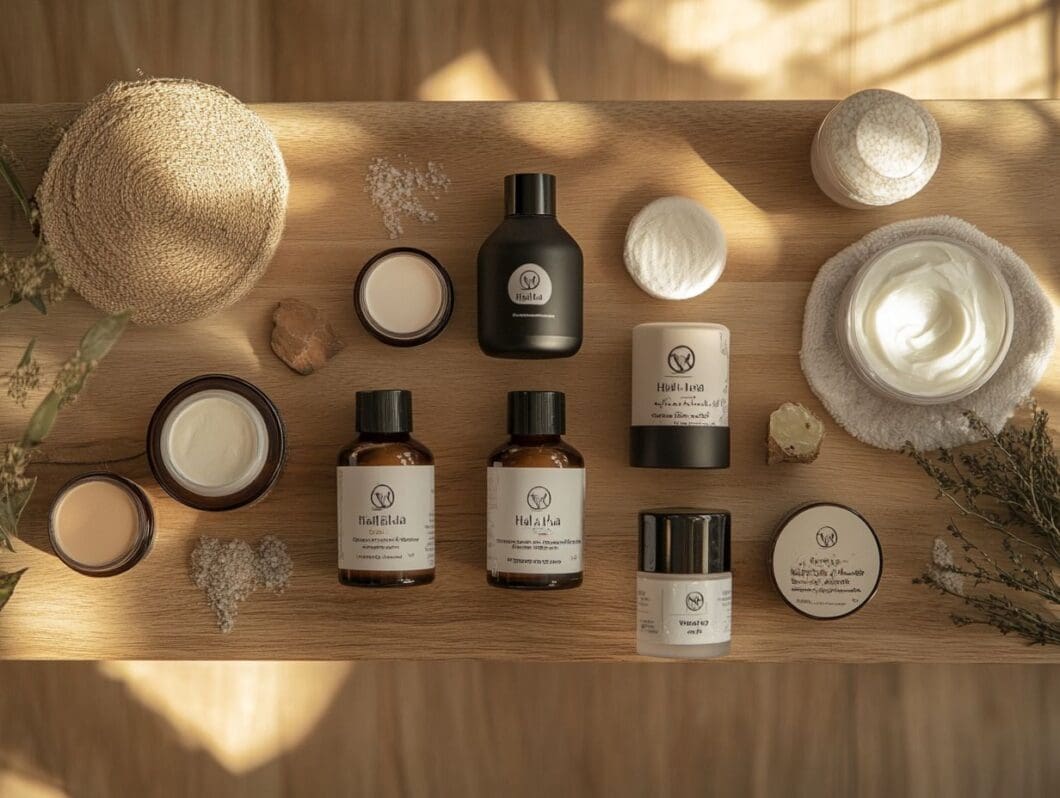In recent years, halal beauty products have gained significant attention, appealing to a diverse audience seeking ethical and health-conscious choices.
What exactly qualifies as halal in the beauty industry? This article explores the definition and principles behind halal beauty, highlighting the health benefits and ethical advantages they offer.
It covers the certifications that ensure products meet halal standards, identifies common ingredients found in these products, and guides you on how to choose the right ones.
Additionally, it addresses common misconceptions that may be holding you back.
Join us on this enlightening journey into the world of halal beauty.
Key Takeaways:
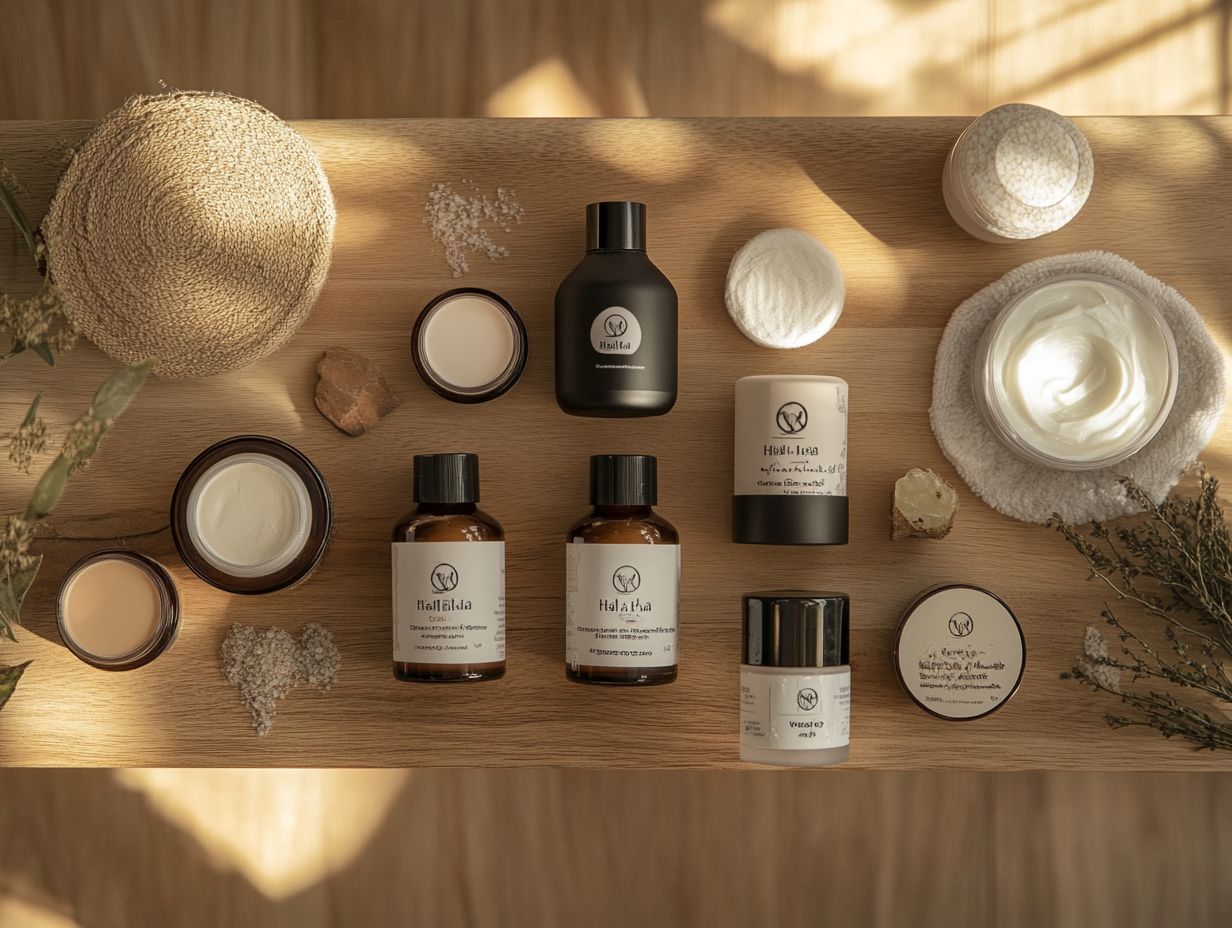
What are Halal Beauty Products?
Halal beauty products are defined as cosmetics and skincare items that comply with Islamic law, ensuring they meet specific halal standards that prohibit certain non-halal ingredients, including animal-derived substances.
This expanding segment of the cosmetics industry promotes ethical sourcing and emphasizes the use of natural ingredients. It caters to a diverse consumer demand for cruelty-free and ethical beauty solutions while respecting religious practices.
Definition and Principles of Halal
The definition of halal encompasses more than dietary restrictions; it includes principles that govern the ethical sourcing and manufacturing of various products, including cosmetics. Adhering to halal standards requires that all ingredients comply with Islamic law, thereby assuring consumers of the purity and ethical integrity of beauty products.
This commitment extends throughout the entire supply chain, from the sourcing of raw materials to the final packaging, necessitating transparency in all operational practices.
For consumers, halal certification in beauty products represents not only adherence to religious guidelines but also a commitment to sustainability and cruelty-free principles. This awareness enables individuals to make informed purchasing decisions that align with their values.
As an increasing number of brands adopt halal practices, the availability of certified options continues to expand, catering to a growing market that prioritizes ethical consumption. This shift also appeals to consumers seeking high-quality, safe beauty products without the risk of harmful ingredients.
Benefits of Using Halal Beauty Products
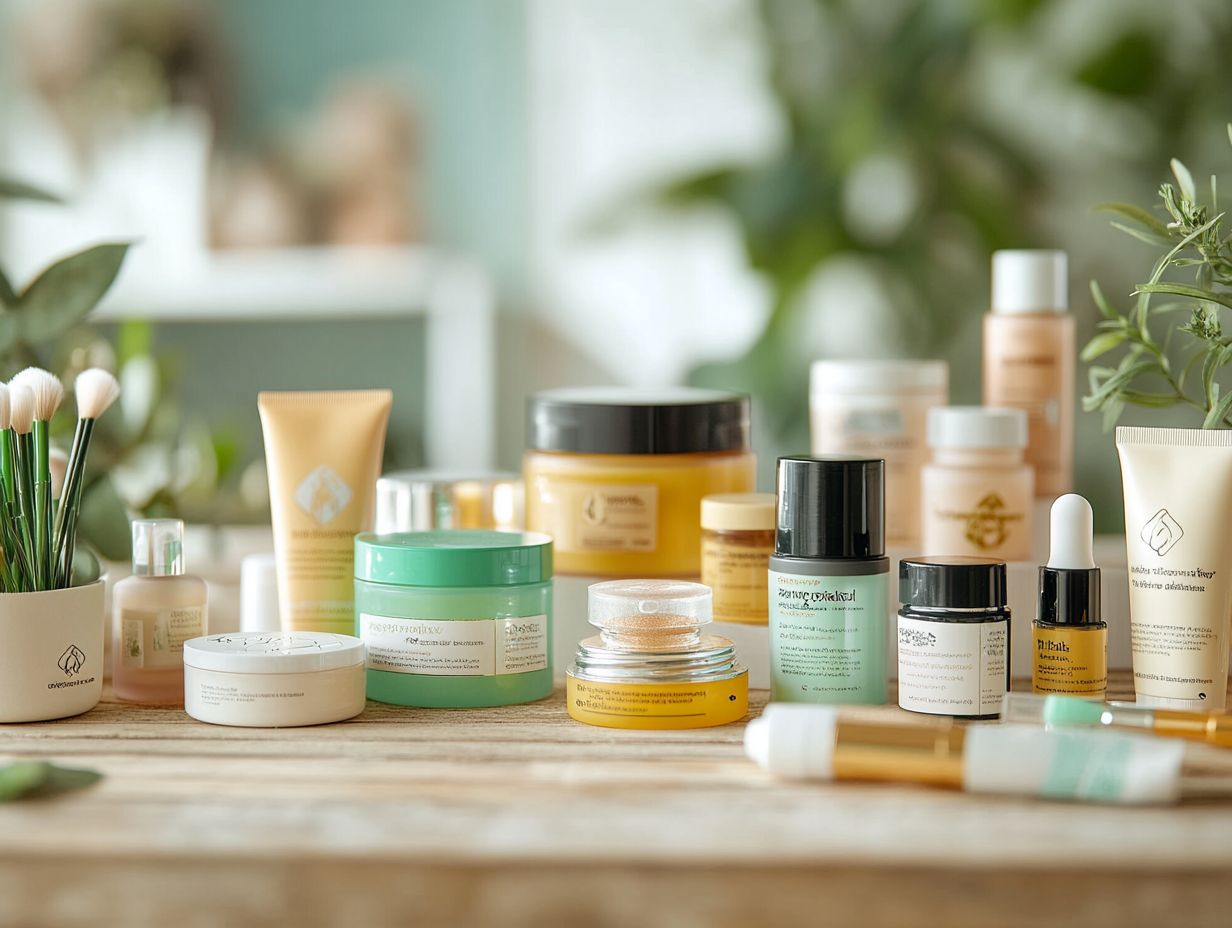
Utilizing halal beauty products presents numerous benefits that extend beyond mere adherence to religious practices. These products frequently emphasize health advantages, ethical sourcing, and cruelty-free methods.
As an increasing number of consumers adopt an ethical lifestyle, the demand for skincare and cosmetic products that align with these values continues to grow.
Health and Ethical Advantages
Halal beauty products offer significant benefits for skin health while also aligning with a broader commitment to ethical sourcing and cruelty-free practices. These products frequently incorporate natural ingredients, making them particularly suitable for individuals with sensitive skin.
Such thoughtful formulations tend to contain fewer irritants, allowing users to engage in skincare routines without the concern of adverse reactions. The increasing consumer awareness regarding the ethical implications of their purchases indicates that halal skincare options resonate profoundly with those who aim to make responsible choices.
Many brands prioritize transparency by emphasizing ethical sourcing practices, ensuring that their ingredients are derived from cruelty-free processes. This commitment not only enhances consumer confidence in the products but also reflects an escalating desire for practices that align with sustainable and humane values, thereby appealing to a conscientious audience.
Certifications and Regulations for Halal Beauty Products
Halal beauty products are subject to rigorous certifications and regulations to ensure compliance with halal guidelines, as defined by various halal certification authorities, including the American Halal Foundation.
These regulations are designed to uphold purity and ethical standards within the cosmetics industry, thereby instilling confidence in consumers regarding their purchases.
Understanding Halal Certification and Standards
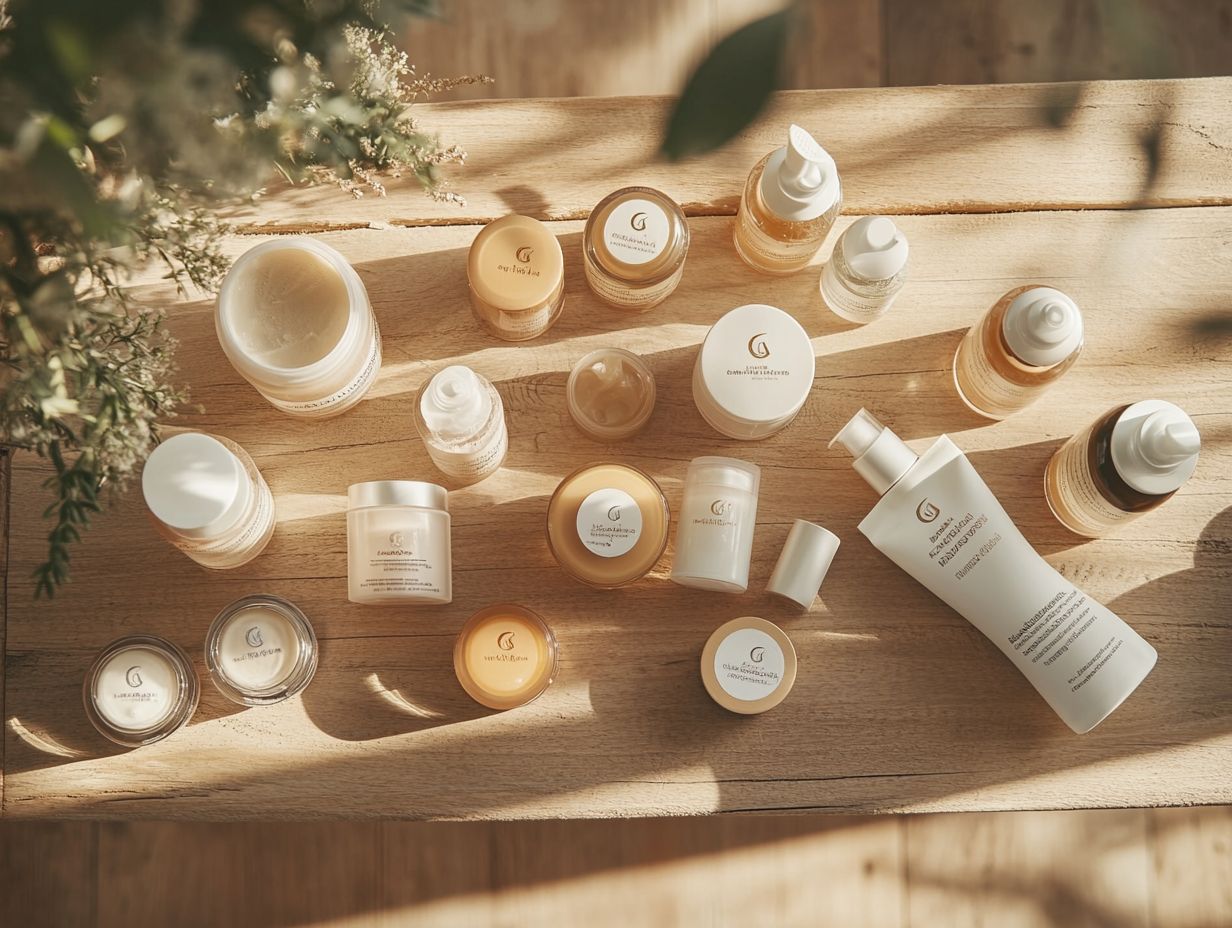
Understanding halal certification and standards is essential for consumers who seek authenticity in their beauty products, as these certifications affirm adherence to stringent halal guidelines. Certification bodies meticulously evaluate both ingredients and manufacturing processes to ensure compliance with halal principles.
These organizations assess all aspects of production, from the sourcing of raw materials to the methods employed in manufacturing, ensuring that no prohibited substances are included. Transparency is of utmost importance in the halal cosmetics market; when brands clearly communicate their certification status and provide detailed ingredient lists, they cultivate greater consumer trust.
This level of openness not only reassures consumers that the products they select align with their values, but it also enhances the overall perception of halal beauty. By comprehending the rigorous criteria established by certification agencies, consumers are enableed to make informed decisions that resonate with their ethical and spiritual beliefs.
Common Ingredients in Halal Beauty Products
Halal beauty products commonly feature plant-based ingredients while explicitly excluding animal-derived components that do not comply with halal standards. The selection of cosmetic ingredients demonstrates a commitment to ethical sourcing and prioritizes health, effectively catering to consumers who value both skincare and ethical beauty practices.
Plant-based and Animal-derived Ingredients
Halal skincare products frequently incorporate a variety of plant-based ingredients that enhance skin health, while strictly omitting animal-derived components that do not meet halal standards. This emphasis on natural and organic formulations aligns with the increasing consumer demand for clean beauty products.
By harnessing ingredients such as aloe vera, which provides hydration and soothes irritated skin, and shea butter, renowned for its rich emollient properties, the appeal of these products transcends mere adherence to religious standards. The exclusion of animal-derived ingredients often appeals to individuals pursuing a vegan lifestyle, reflecting a broader inclusivity within consumer preferences.
The use of animal-derived ingredients can raise ethical concerns and may lead to potential skin reactions, prompting many consumers to seek alternatives that resonate with their personal values while positively impacting their skin health. These considered choices illustrate a significant shift towards sustainability and compassion within the beauty industry.
How to Identify and Choose Halal Beauty Products
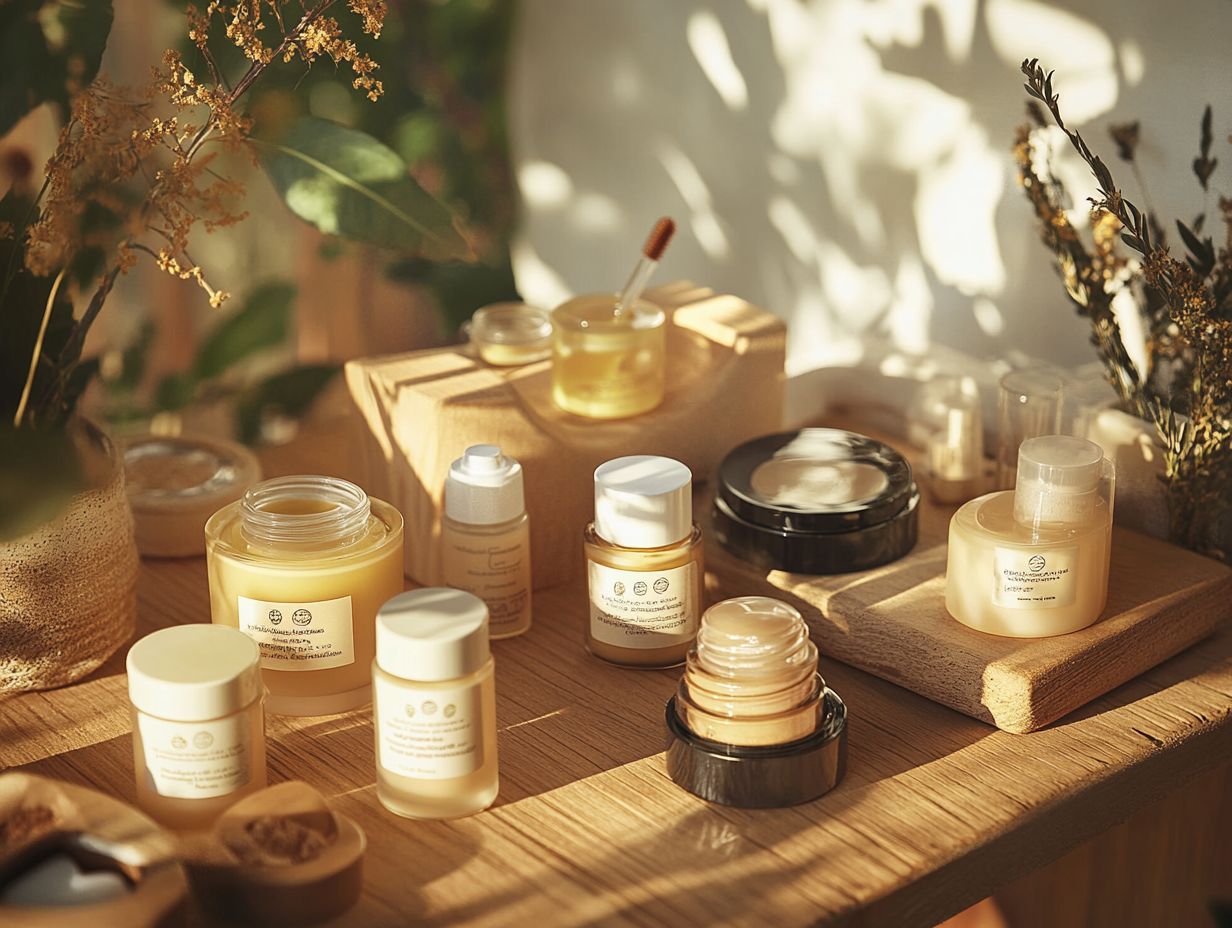
Identifying and selecting halal beauty products requires a thorough examination of labels to locate halal certification logos and a comprehensive understanding of the listed ingredients, ensuring that they are devoid of non-halal substances.
This process is essential for consumers dedicated to upholding a halal lifestyle while carefully curating their skincare and makeup routines.
Reading Labels and Understanding Ingredients
Reading labels and understanding ingredients is crucial for consumers selecting halal beauty products, as it enables them to avoid non-halal ingredients while adhering to ethical beauty practices. This approach not only promotes transparency but also enables consumers to make informed choices.
When examining ingredient lists, it is important to look for terms such as “collagen,” “gelatin,” or any animal-derived substances, as these may indicate that a product does not meet halal criteria. Components like lanolin, which is often sourced from sheep’s wool, and certain enzymes derived from animal sources can be concealed within complex formulations. Utilizing resources such as halal certification symbols or dedicated apps can significantly improve a consumer’s ability to identify suitable options.
By remaining attentive to these details, individuals can confidently select skincare and makeup products that align with their values, thereby ensuring a commitment to both beauty and ethical standards.
Misconceptions About Halal Beauty Products
Despite the increasing popularity of halal beauty, numerous misconceptions continue to exist regarding the nature and standards of these products. This often results in consumers questioning their efficacy and ethical implications.
It is crucial to understand the realities behind these misconceptions in order to foster an informed perspective on halal cosmetics and their significance within the ethical beauty movement.
Debunking Myths and Clarifying Misconceptions
Debunking myths surrounding halal beauty products is essential to clarify misconceptions that may hinder consumers from adopting this ethical and health-conscious choice, thereby fostering a better understanding of halal standards. The misconceptions often include concerns regarding the effectiveness of halal cosmetics and the belief that such products are exclusively for religious consumers.
In reality, halal beauty products are formulated without harmful ingredients and frequently utilize natural alternatives that enhance both safety and performance. Many individuals may not recognize that these products adhere to stringent ethical standards, making them suitable for anyone who prioritizes sustainability and animal welfare in their beauty regimen.
Halal beauty is increasingly gaining traction among diverse demographics, as it is recognized for its commitment to inclusivity and its responsiveness to modern consumers’ demands for transparency and integrity in cosmetic formulations. This trend reflects a broader movement within the cosmetic industry, encouraging all individuals to select products that align with their personal values.


